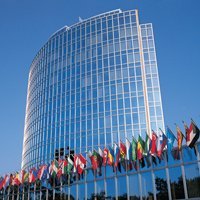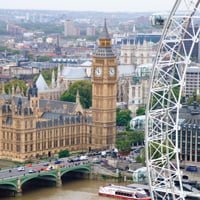
The Foreign & Commonwealth Office (FCO) is the lead UK government department in foreign affairs.
Its mission is to formulate and deliver foreign policy and look after UK interests abroad. This includes providing services and supporting British citizens abroad. It also supports British companies through UK Trade and Investment.
The UK works with other countries on major issues like climate change, financial stability, resolving conflicts and countering terrorism. The FCO has a global network of embassies, high commissions and consulates that all support UK government policies, UK businesses and UK individuals overseas.
The FCO’s work is diverse and is primarily in three areas:
- Its embassies, high commissions and consulates provide a worldwide network for its staff and other parts of the UK government to tackle the key issues affecting Britain today. This includes managing relationships with other countries and international institutions, such as theUnited Nations (UN) and the European Union (EU).
- It formulates and delivers British foreign policy. This means working on key issues such as climate change, human rights and democracy, conflict prevention and resolution, and counter terrorism.
- It provides services for British nationals travelling or working abroad as well as promoting and supporting British businesses in overseas markets.

The FCO has 16,000 employees worldwide based in 260 embassies, high commissions and consulates. It deals with around 2.9 million enquiries every year. British nationals run these offices supported by employees from the local community.
FCO employees handle a wide range of activities and stakeholders as part of their day-to-day diplomatic work. This might include arranging visits for members of the Royal Family, British politicians, or delegations of British Muslims who talk about life in the UK as a Muslim, issuing visas or helping a UK business export its goods overseas. This work is challenging and FCO employees need a wide range of abilities in order to deliver the FCO’s mission.
This case study examines how the FCO meets its goals through the skills and competencies of its people.
It is important for every organisation to be clear about what it wants to achieve. A mission statement gives the direction and focus for the organisation.

FCO’s mission statement is: ‘Better World, Better Britain’. This statement recognises the interdependence of countries, for example, Britain trades with the Caribbean islands for its year round supply of tropical fruits. This means that the Caribbean has a stable economy. It also means by maintaining good relations with other nations it should make the world a safer, more just and prosperous place and in turn Britain too.
Events in other countries impact upon businesses, individuals and the economy in the UK. For instance, when oil prices increase in the Middle East, it has a knock-on effect for the cost of petrol/diesel prices making it more expensive to transport goods in and out of the UK.
In order to meet its mission, FCO needs to set clear goals and aims. Within each aim, FCO sets out a number of objectives. Objectives are more precise statements that help to deliver the goals.

The FCO has identified a number of goals and objectives in three main areas to support its mission to create a fairer and safer world. This benefits British citizens living in the UK and abroad and helps improve their quality of life.
- Essential services – are about supporting the British economy and people. One objective within this goal is ‘to improve the reputation of the UK as the international business partner of choice in key sectors in leading overseas markets’. The aim of this objective is to improve the performance and opportunities of UK companies operating in an increasingly globalised and competitive world by prioritising these sectors: creative industries, life sciences, information and communication technology, energy technologies and financial and legal services. As part of this the FCO also supports and advises foreign companies who want to invest in the UK. Latest figures show that more than 7,500 companies improved their performance as a result of FCO support, generating around £2.5 billion benefit. FCO identified 17 high-growth markets with significant opportunities for UK business. They focus their staff and resources in markets such as India, China, Brazil and Russia.
- Policy goals – are about wider issues and relationships. For example, within the goal of preventing and resolving conflict, objectives include ‘to promote human rights, democracy, rule of law and good governance.’ For example managing projects in China to restrict the use of the death penalty.
- The global network -This includes setting up meetings between host governments and experts from the British government, and making sure that the right messages are communicated at the right time to host governments. For example FCO’s High Commission in Islamabad, Pakistan, has staff from the Home Office, Metropolitan Police Department for Transport, Ministry of Defence and the Department for International Development.
The skills and expertise of FCO’s staff in languages and diplomacy can be essential for other UK Government departments to work effectively with their foreign counterparts.
Objectives can be SMART (Specific, Measurable, Achievable, Realistic and with a Time-frame). This means clearly measurable targets or outcomes are set, so that the FCO can identify when they are achieved. FCO has produced a new strategic framework to bring together its goals and objectives and demonstrate how it is planning to achieve them.

Once FCO has identified specifically what it wants to achieve and by when, it then goes on to develop strategies and tactics.
- Strategies are the broader plans the ‘what needs to be done’. These are generally longer term.
- Tactics are shorter term activities which help to fulfil the strategy.
There may be several tactical ways of implementing a strategy.
As part of FCO’s work, it aims to counter the spread of nuclear weapons. Some of the strategies it adopted to meet this aim included:
- discussions with world leaders to secure a unanimous UN resolution to curb Iran’s nuclear weapons programme
- contribution to drafting a letter from EU foreign ministers to Iran offering assistance and support in creating a modern, stable nuclear energy programme
- co-ordinating Britain’s response to Iran with partners such as the International Atomic Energy Agency (IAEA) and members of the European Union, the US, China and Russia.

FCO’s goal to ‘Support British nationals abroad’ includes the need to protect the 200-300 British citizens every year who are forced into marriage overseas.
Vinay is the Head of the Forced Marriage Unit which implements this goal:
My job makes a difference. The FCO is the only government body in the world involved in helping individuals escape from forced marriages. It is also about changing perceptions and raising awareness. Many people who force their children into marriage think they are just encouraging them like encouraging them to go to university. I need to be able to deal with people in sensitive situations and communicate complicated messages in an easily understandable way. You don”t always have the right answers but it does force you to think and you develop good line management skills at the same time.’
The FCO sets out its objectives relying on its people to make things happen. FCO staff need to be innovative and able to handle and solve problems creatively. They must also be capable of taking high levels of responsibility. This is why, when someone applies for a job, FCO is more interested in the whole person not just their qualifications.

The role of the Operational Officer gives a good example of the range of projects that members of the FCO work on. Operational Officers deal with the practical side of FCO’s work both in the UK and overseas. They typically spend three years in London working on policy and service delivery roles before going overseas to work in one of the 260 posts in FCO’s global network.
An example of a policy role is the Arms Trade Desk Officer. Their aim is to put together a global Arms Trade Treaty to curb the irresponsible trade and transfer of arms that are used to undermine stability, democracy, development and human rights. It requires transferable skills that can be used in many work areas.

Operational Officers need to be good communicators as the situations they deal with can change from day-to-day – chairing meetings or public speaking one day, helping a British national in trouble another and dealing with the media the next. They must be good at working with many different types of people; they can work alongside a range of people such as government officials or someone seeking political asylum.
Operational Officers also have to have good judgement and the ability to make the right decision at the right time. It also requires confidence to take on different tasks and in challenging circumstances including overseas. For example, the FCO has been involved in:
- improving security in Iraq
- assisting the return of refugees in Kosovo
- helping women in Morocco to use their rights under family law
- protecting Borneo’s rainforests
- raising awareness about human trafficking
- organising a trade event such as the World Trade Week UK which highlights the importance of global trade in creating jobs and growth. It will help showcase the UK as a trading nation and the importance of global trade to reducing global poverty.
As FCO roles are so varied and responsibilities high, training and development is very important for career progression in the FCO. People joining FCO have an initial four weeks induction training to learn about the organisation. After that, individuals work with their managers to decide what training is best for them according to their role.

Additionally, coaching and mentoring by managers helps FCO people to reach their full potential within their role and have the opportunity to progress into management roles or different areas of the organisation. To be effective in meeting FCO’s goals and objectives, Operational Officers need to be flexible in approach and be able to cope with change. Their work often involves solving problems, like a lost passport or finding diplomatic solutions for local problems. For instance they may need to work with police and the local community if UK football fans were visiting another country for a big game.
James is a university graduate interested in international affairs and overseas travel:
‘I was attracted to FCO because I wanted the opportunity to travel and be a part of the challenging and interesting projects it has all over the world. I joined the FCO in 2007 as an Operational Officer. My first role in the FCO was working on the economic impact of Climate Change to countries such as Bangladesh, Pakistan and India. I dealt with politicians, business leaders and members of the public. I am now Deputy Head of the Overseas Learning and Development team, part of FCO’s Human Resources function managing the FCO’s regional training centres. I have worked in South Africa, Hong Kong and Dubai. FCO provides on-going training to ensure its people have relevant, transferable skills for their jobs. I genuinely feel that the organisation is committed to investing in my future.’

For the FCO, it is essential for it to meet its performance targets. This means having the right people in the right place at the right time to put the strategies in place to achieve its goals and objectives.
Every year the FCO’s autumn performance report illustrates how it has met its objectives and its Public Service Agreement (PSA) targets. These targets are set by central government.
The FCO uses the report to assess how it will make improvements for the following year. It also provides the UK public and government with a clear view about its performance and if it is making effective use of its government funding. This means that voters, politicians and other stakeholders can judge how well the FCO has fulfilled its mission of achieving a ‘Better World, Better Britain’.
The FCO is going beyond its requirements of meeting government targets by winning awards for its work. Recent achievements include:
- the ‘Know Before You Go’ campaign won the gold award for ‘Best Consumer Promotion’ in the Travel Industry Group awards. This supports FCO’s work with British nationals on holiday
- the FCO Press Office was awarded Press Office of the Year 2006 at the Foreign Press Awards. This was for their help in supporting foreign media.
Without the different backgrounds and skills of people the FCO employs, the targets and awards could not be achieved.

The Foreign & Commonwealth Office has a mission to provide a service to protect and support the British public in the UK and abroad. In working towards its mission it sets a range of goals and objectives which also need to encompass meeting government targets.
Feedback on these targets is published each year in the autumn performance report. These are then assessed against the FCO’s Public Service Agreement targets.
The FCO’s scope of work requires a wide variety of people with a range of abilities to undertake the different roles and the challenges they present. These roles have responsibilities which offer many challenges for those who work within the organisation. Much of it is undertaken overseas.
Its mission provides the focus for everybody working within the FCO. In doing this the FCO provides its employees with the opportunity for varied work all over the world, and the opportunity that they can make a difference.
